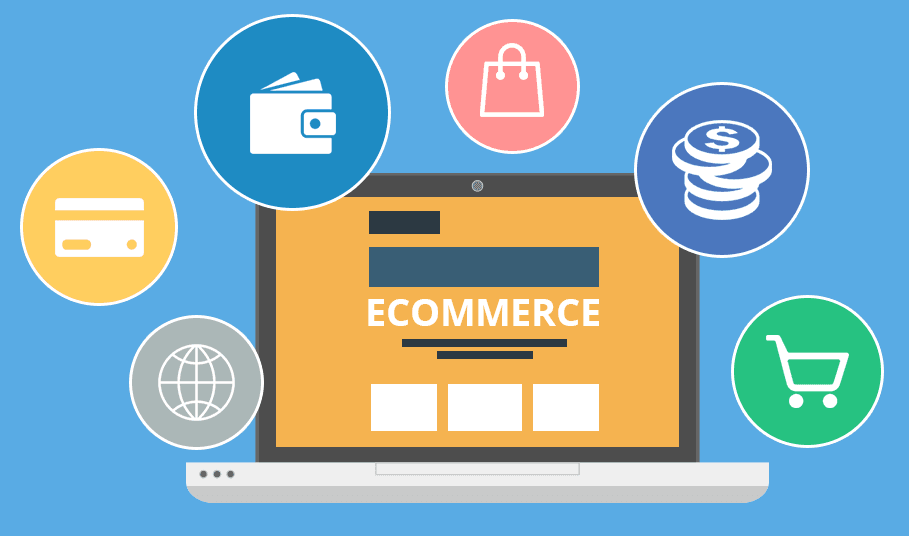
SEO is a low-hanging fruit yet the most substantial for an eCommerce store. Whether you are a professional or a newbie, attracting customers to your store is a significant step towards a successful eCommerce business. For eCommerce websites, higher and better quality traffic often equals more sales.
It is not an exaggeration to say that SEO is one of the most effective ways to multiply your revenues and profits. Often better optimization leads to higher ranking which eventually equals more traffic and greater income. This is one reason why big names in the eCommerce world invest in SEO.
As an eCommerce merchant, you must go with an eCommerce platform as besides affecting the SEO of your store it also provides numerous other must-have features and increases the speed, security, and performance of your store. The best way to look for the perfect eCommerce platform is to compare them across various categories such as ease of use, pricing, features, etc
For that, you can check this in-depth comparison between Shopify and GoDaddy – the two most well-known eCommerce platforms in the market.
So should you really go for an eCommerce platform for a better ranking of your stores? How do eCommerce platforms build upon SEO features?
In this article, we are going to answer all your queries regarding eCommerce platforms and their role in SEO. So let’s get started.
eCommerce platforms provide a wide range of SEO features that help optimize your store like none other. We will be discussing the prominent ones in this article.
Read More : 3 Easy Ways To Access GoDaddy Email Webmail Login 2021
-
Mobile-responsive
With the increase in eCommerce stores and the growing trend of online buying and selling, an ever-growing number of consumers are turning to their phones for online purchasing. Not having a website that is mobile-responsive and does not resize properly when accessed from a different device is a major turn-off and can turn away a handful number of customers due to slow and irritating processes.
eCommerce platforms make sure that your business sites and stores adjust to all screen sizes through responsive templates and editors, hence making your store accessible to a larger pool of potential customers.
-
Ability to customize SEO settings
eCommerce platforms give you full access to edit and modify titles, meta descriptions, URLs, and headers for different pages including the home page and product page.
The header tags would prove to be advantageous if they are relevant to what people are searching for. Both title tags and meta descriptions are imperative because they add the targeted keywords. Meanwhile, a good meta description shows the user that he is relevant to his search.
-
A well-structured URL and 301 redirects
A URL is undoubtedly one of the most important components for SEO purposes. eCommerce platforms that allow you to edit URL strings and rearrange their structure as well as provide a feature to redirect any old URL to a new one are considered SEO friendly.
Some eCommerce platforms offer this feature with additional charges while others such as Shopify has made it really easy to complete a redirect as it has a tool for it right in its dashboard. Shopify itself comes with a complete suite of SEO and other powerful features that lets you build a successful store.
-
Customizable taxonomy
The taxonomy options enable you to make both brand and category pages as these two are the most searched and thereby, a key in driving valuable traffic to your store.
Some of the eCommerce platforms also give you an opportunity to make categories that you wish whereby help in making the store easier to navigate. Brand pages can be optimized for branded keywords, improving both the SEO and a user’s experience.
-
Blogging platform
eCommerce platforms often even offer integrated full-fledged blogging functionality to help rank up in search engines. The blogging platform serves as a company’s voice and ensures that you are presenting content for your potential customers that they find intriguing, engaging as well as useful.
The blog should be on the same domain name as your main website so that any external links pointing to your blog can be accessed. Such features keep your traffic engaged while promoting your business besides positively affecting the SEO.
-
XML Sitemaps
An XML is a file on the webserver that helps search engines find and index your content. A good eCommerce platform will automatically generate an XML sitemap whenever a new page is added to, or removed from, your website. However, there are some platforms that only offer this as a premium extension for an additional cost.
-
Robots.txt Control
They basically tell the search engine neither to index certain web pages nor rank them into search engine result pages. This proves to be of great help as it lets you block some pages like thank-you or order confirmation.
It is also helpful for blocking search engines from crawling non-HTML files that do not support the robot’s meta tag. eCommerce platforms that let you control robots.txt control are definitely SEO friendly.
-
Good Customer Support and technical team
The last thing you want is to have your online store up and running but to be nearly invisible on search engines due to the limited functionality of your e-commerce platform and the inability of its technical team to help reconcile the issue.
The majority of eCommerce platforms offer an array of resources for customer support which plays a key role in multiplying the SEO of your website. Some of them even take a step ahead and provide you with technical experts that will help you optimize your store.
-
Strong internal search
A handful of eCommerce platforms let you search internally for items or categories they might have not come across while going through the online store. However, not all eCommerce platforms come up with satisfactory results in this regard.
Some good names in the eCommerce world come up with accurate results whether the user puts in the name of the product, its category, or any other relevant description.
-
Use of own IP address and domain name
Almost all eCommerce platforms allow you to use your own domain name giving you the freedom to choose one which gives your business a professional look. However, as far as the IP address is concerned, most of the hosted eCommerce platform providers do not give that access but take steps to prevent another client’s activities from negatively impacting your website.
However, a self-hosted solution like WooCommerce allows you to use your own unique IP address which is an important factor in increasing the ranking of your website.
In conclusion
eCommerce platforms play a vital role in ranking your online stores and business sites consequently increasing customer leads which eventually leads to greater revenue. Therefore, when looking to sell online, you must start with an eCommerce platform to make most of their SEO features and tools to optimize your store.





